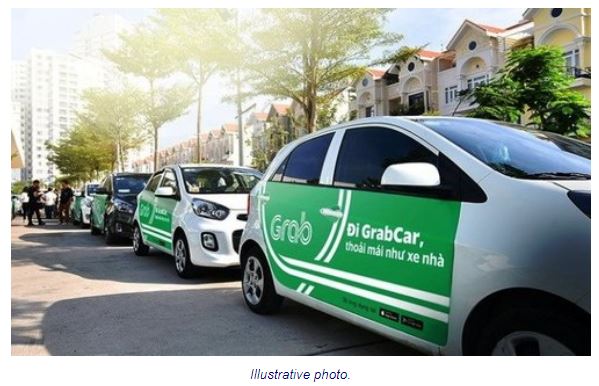Vietnam’s transport ministry supports GrabTaxi expansion
The move is aimed to meet customer demands for transportation in these four provinces and improve the service quality of the transportation sector.
The MoT reiterated that the application of technology to the management and connection of electronic-based transportation has created more option for passengers.
Grab’s services are currently available in five cities and provinces, which are Hanoi, Ho Chi Minh City, Khanh Hoa, Da Nang and Quang Ninh, following the government’s direction and Decision No. 24 of the ministry to pilot the application of technology in managing and connecting electronic contract-based passenger transportation.
In June, Grab Vietnam asked for permission to bring its service to a number of provinces and cities which are not included in the pilot program namely Ninh Thuan, Dong Thap and Gia Lai.
The MoT, however, rejected Grab’s proposal to expand its service network beyond the current five cities and provinces.
In early 2018, the MoT requested Grab to stop operation in three provinces namely Thua Thien – Hue, Ba Ria – Vung Tau, and Lam Dong, saying that the ride-hailing service was not permitted in those localities.
Grab on March 26 confirmed its acquisition of Uber’s Southeast Asia operation for an undisclosed sum, raising concern over its alleged monopoly status in the region’s ride-hailing market.
The Vietnam Competition Authority (VCA) under the Ministry of Industry and Trade on December 12 said in a statement that Grab’s acquisition of Uber’s Southeast Asia operation, including Vietnam’s market, has infringed competition law.
The case would be referred to the Vietnam Competition Council (VCC) for further handling in accordance with the law on competition.
According to the law, the VCC would establish a panel to work on the case. Within 30 working days, the panel would decide whether to return the case dossier for further investigation in maximum 60 days; to suspend or proceed with the case.
On March 27, the VCA requested Grab to report over the deal, with a view to determine whether the deal is in conformity with the Law on Competition.


 Thailand
Thailand




